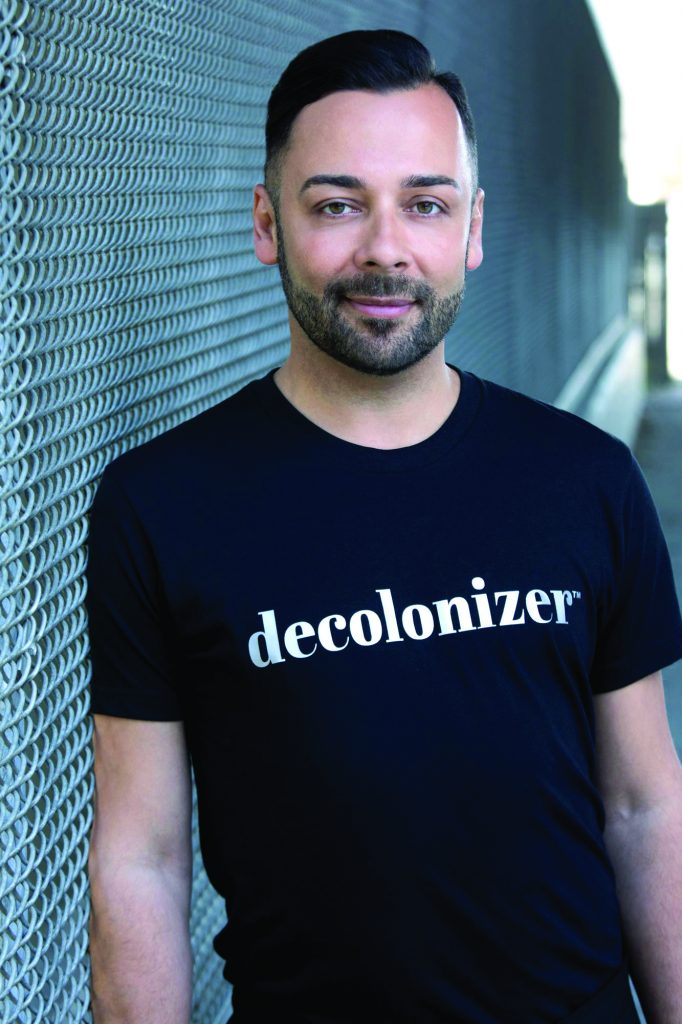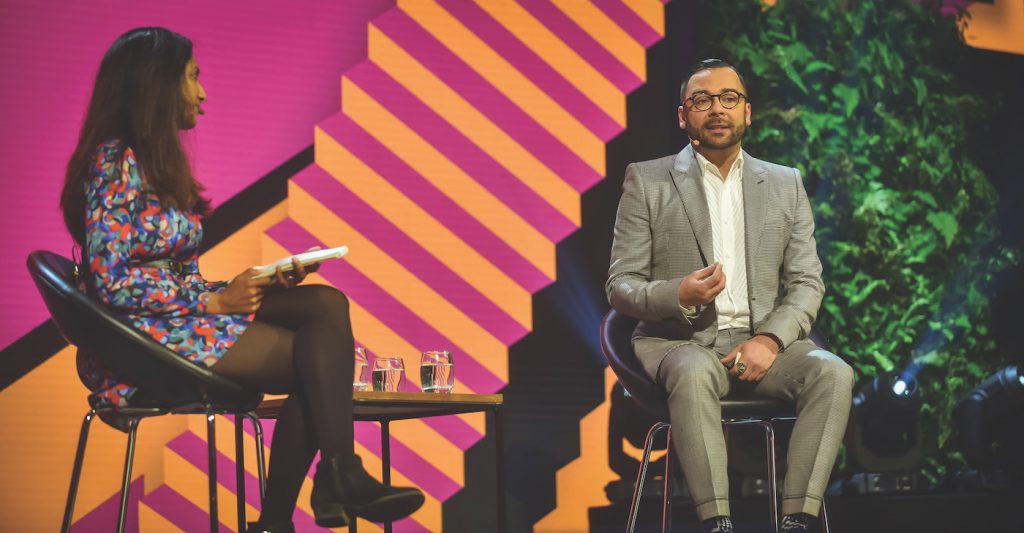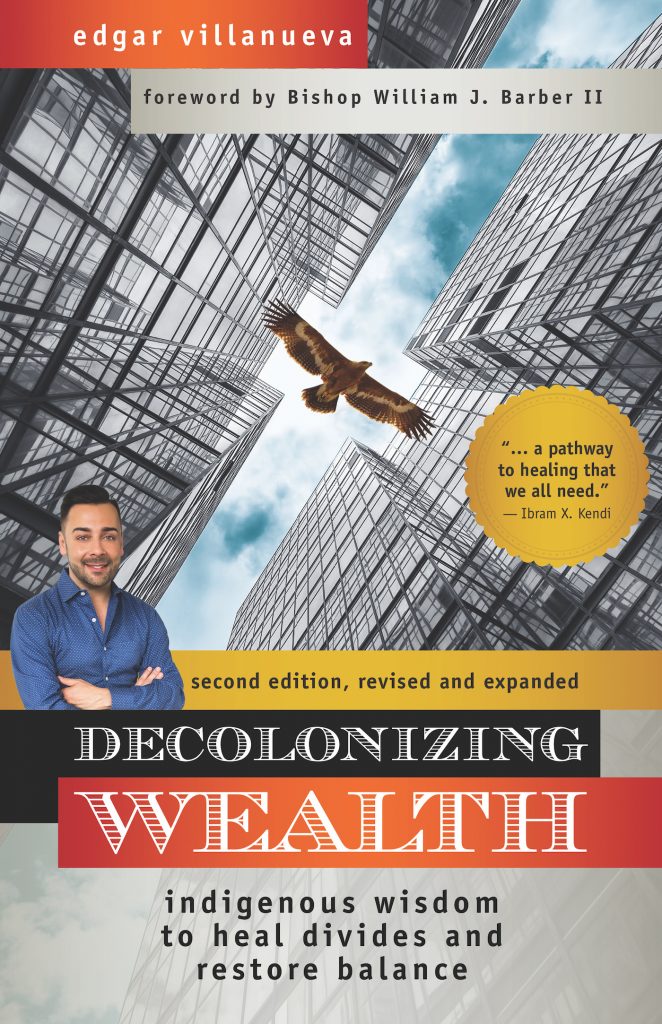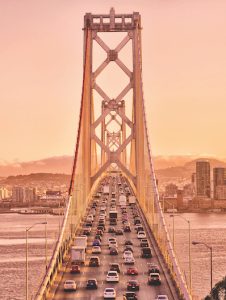Money as Medicine

In 2018, a Native American philanthropy professional dropped a bomb on the industry. In his book, Decolonizing Wealth: Indigenous Wisdom to Heal Divides and Restore Balance, Edgar Villanueva laid bare the inequities rife throughout philanthropy and the financial system.
Now in its second edition, Decolonizing Wealth is the central text for what Villanueva simply describes as “modern philanthropy,” one in which capital is used for reconciliation and reparations through wealth redistribution.
To move that effort forward, Villanueva launched Liberated Capital, a donor community and intermediary that is working with more than 350 individual donors and charitable foundations to support nonprofits across the country that serve or are led by Black, Indigenous, and other people of color.
In this conversation, Villanueva and I discuss topics ranging from using charitable foundations’ corpora for public benefit, the likelihood that legislation will be required to ensure that donor-advised funds are used for charity, and whether the philanthropic changes following the murder of George Floyd will be lasting.
Why did you feel compelled to write Decolonizing Wealth?
I really felt called to do it. I never really saw myself as an author or a writer before, but I felt like I had a story inside that I just had to get out.
It almost felt like it wasn’t a choice, but mine was a story that really needed to be told. As a Native American person from the South with multiple, intersecting identities that are not seen in the space of philanthropy, I faced a lot of challenges in working to move money to communities and remain my authentic self. I began to see there were contradictions and challenges that we were uncomfortable discussing in the space.
I also wrote the book because I love this sector, and I wanted to call us into a deep and honest conversation. I got exhausted from hearing about diversity, equity, and inclusion all the time and not really seeing the numbers change in terms of what leadership in the field looked like or where dollars are going.
Finally, writing the book was a part of my own healing. Being a person that did not come from wealth and working in such a privileged space and dealing with microaggressions, I faced a forced assimilation to be and represent something that I wasn’t – that was really hard. And I began to see this was an experience I shared with a lot of people who were from marginalized backgrounds, including women, LGBTQ folks, other people of color.
I became consumed with the idea and practice of healing and thinking about how I can bring that Indigenous worldview, experience, and wisdom about healing to this sector to repair what was broken.
A through line in the book is this concept of healing. What does philanthropy need to heal from?
What I’ve come to understand through this Indigenous worldview is that the trauma of inequality or the trauma of white supremacy has hurt all of us in this country. We all need healing: Indigenous, Black, and white people. And the only way to get there is to do that through a collective process.
We all have to take ownership of this country’s history, have truth and reconciliation around it, and understand what must be repaired to support collective healing.
Through the donor circle you established, Liberated Capital, you have invited funders to support Black-, Indigenous-, and people of color-led nonprofits. You said this could help them find healing and liberation. What does that mean?
Using money as medicine is really about understanding that the hurt is the most in communities of color. It’s about prioritizing and moving money to Black, Indigenous, and people of color in the form of reparations or reparative giving.
That is what our fund, Liberated Capital, is all about. We move untethered capital to Indigenous and Black and POC-led organizations. And we only accept money from folks who want to give it freely without any type of strings attached or forced assimilation on our part. It is a place where you’re giving through a reparative justice or reparations lens, where we’re trusting communities to take that money and to use it as they see fit.

Money is energy, and we are liberating that energy to communities because it’s the right thing to do. And we see that the act of giving is in and of itself a step toward healing and repair: Using money as medicine is not a charitable act of altruism.
Despite your clarion call, the concept of impact investing – or at least mission-focused investing – has been slow to gain significant traction across philanthropy. You still have foundations that may fund environmental activism, which have investments coming out of their endowments wormed up with fossil fuels. What is the opportunity for change here?
I love this question because this is so much more transformative than just talking about grantmaking. Because you’re right, the majority of philanthropic capital is sitting in banks or invested in Wall Street.
The truth is the incentives in this industry are currently structured to favor the hoarding of wealth versus giving away money. And the 5% minimum payout rule that was put in place in 1976 is, I think, a blemish on the history of philanthropy. It’s a sad thing that there had to be an act of Congress to force foundations to actually give money to the community.
Donors do a little bit of good with that 5% that goes to the community, but the vast majority of the wealth is often not aligned with the mission. And in fact, we know from data, most of it is invested in harmful and extractive industries. For example, funders who support criminal justice reform through grantmaking while they’re invested in private prisons in their endowments. My work is not about shaming or calling people out necessarily, but it is about being honest. It is what it is. There’s a lot of contradictions. Philanthropy exists because it is a byproduct of a system of inequality that has favored the wealthy, a capitalistic system that allows for so few people to build wealth and create foundations.
If we can be honest about it, then we just might be able to have some reforms that are people- and community-centered, shifting things away from hoarding wealth and those scarcity mindsets that come from fear, which are byproducts of colonization. Money as medicine is helping us understand that something is broken and that we can shift this paradigm towards using all our resources, including endowments, towards healing people and the planet.
Let’s own up to that and apologize for how we’ve harmed others. Let’s step up to the plate to do things differently, especially for communities of color, who have played such a critical role in building wealth in this country and have been marginalized.

OK, but there are also vast sums of capital locked up in donor-advised funds. There have been rumblings around legislation that would make that money move out of private markets and into the social sector, like the 5% rule in institutional philanthropy. Do you think that policy change is needed?
Regrettably, I will say yes.
Philanthropy has been an industry that prefers to be self-regulated and to be self-reliant on implementing best practices. We’ve known for decades that giving general operating, unrestricted support to nonprofits is both what they ask for and want and is best-practice philanthropy. Yet so few foundations are doing it, and there is actually a decline in general operating support from funders.
My work hasushered in an era of truth telling and reckoning about what’s going on. And there’s an invitation for philanthropy to adhere to the moral imperative to do the right thing.
But unfortunately, power is not often ceded. It has to be taken. External pressure may be considered, including legislation, to force philanthropy to adhere to the moral imperative to do the right thing. It’s really hard for me to reconcile that you can get a charitable deduction off of money that is then put into private markets and has zero public benefit. On behalf of the American public, folks are just asking for fairness – if you’re getting that tax break, there should be some demonstrated public benefit.
While it can be argued that philanthropy is prone to follow news cycles, it feels like there will be some lasting change from the double blow of the pandemic and George Floyd. What should the field take away from these painful years?
Some of the progress that I see funders making is not just coming from the radical left.
I’m seeing middle of the road, regular foundations step up and do what some may have considered to be radical. It’s not radical, it’s modern philanthropy. It’s just how we do our work now. So, I am inspired.
I think that folks like MacKenzie Scott are changing the weather on this. And she in her writing has acknowledged that it’s the right thing to do because she benefits from a system of privilege and accumulated benefits.
We’re at a place where there’s a movement. I’m not the only one saying these things.
There’s an army of folks, including donors and philanthropists and white folks who are demanding that we not go back to business as usual. This is the new way we’re going to do our work. We’re going to continue to bend the arc towards justice and reparations, because that is the opportunity. This way will not only help communities and support closing this racial wealth gap, but it’s the only way to freedom for all of us because our systems are broken. Our communities are broken and torn apart.
There’s so much pain and trauma everywhere, especially after 2020, the only way out of this is healing, and the only way that we will all thrive and heal is if we come together and accept the collective responsibility of our history and future.
You now have your second edition out. What is next for Edgar?
I don’t want to sit in this sad place forever and dwell on these things forever.
I want to get to the other side of this, but I know the only way to do so is to step into the truth of it all.
And that’s why we’re really going to continue to elevate the work around reparations. We will keep supporting groups on the front lines and using the power of storytelling to bring us all into the conversation and to inspire us to join this movement for truth reconciliation and healing.
